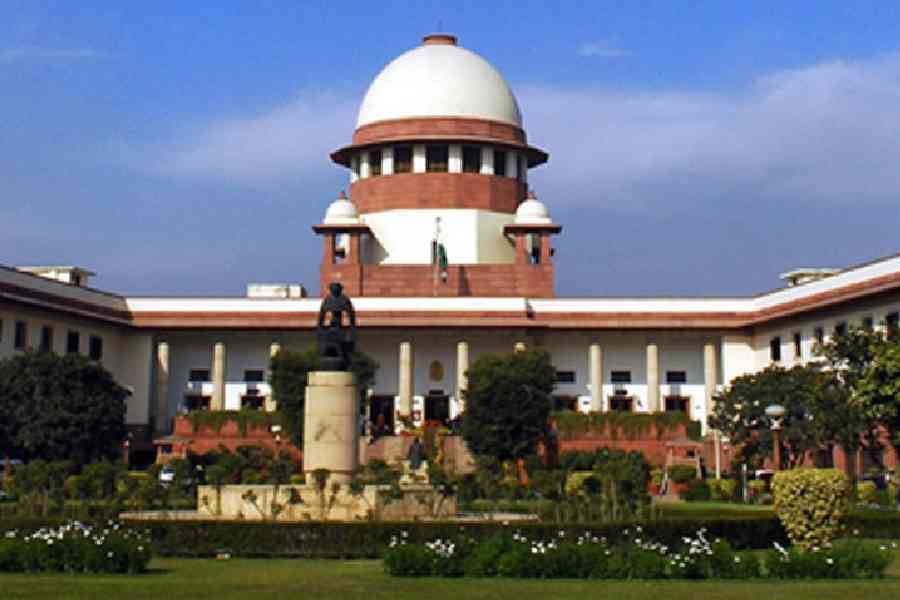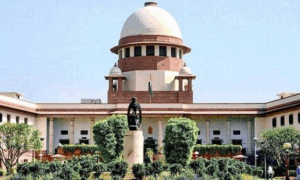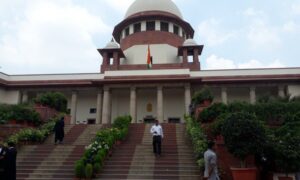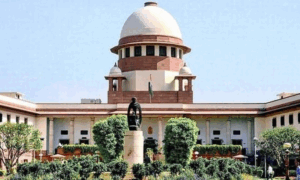
File Picture
The Central Bureau of Investigation is under the superintendence of the Union government as per the statutory scheme, the Supreme Court held on Wednesday while rejecting the Centre’s objection to the maintainability of a lawsuit by West Bengal contesting the federal agency’s action of pressing ahead with investigation of cases in the state despite withdrawal of general consent.
According to PTI, West Bengal had withdrawn the general consent allowing the CBI to probe cases or conduct raids in the state on November 16, 2018.
Referring to various provisions of the Delhi Special Police Establishment (DSPE) Act, 1946, the top court said, “We further find that the very establishment, exercise of powers, extension of jurisdiction, the superintendence of the DSPE, all vest with the Government of India.”
“In our view, the CBI is an organ or a body which is established by and which is under the superintendence of the Government of India in view of the statutory scheme as enacted by the DSPE Act,” a bench of Justices B R Gavai and Sandeep Mehta said while ruling that the suit is maintainable.
It said a perusal of the entire scheme would reveal that right from the constitution of the special police force, which is called DSPE, issuance of notifications specifying the offences or classes of offences which are to be investigated by it, superintendence and administration of DSPE and extension of powers and jurisdiction of DSPE to areas beyond the Union territories, “it is the central government which is vitally concerned with”.
“Not only that, only such offences which the central government notifies in the official gazette, can be investigated by the DSPE,” the bench said in its 74-page verdict.
It said under section 4 of DSPE Act, except for the offences under the Prevention of Corruption Act in which superintendence will be with the Central Vigilance Commission, the superintendence of DSPE in all other matters would vest with central government.
Reacting to the SC ruling, TMC Rajya Sabha MP Sagarika Ghose tweeted on X , BIG. SLAP ON THE FACE for National Disaster Alliance Government headed by the non-biological PM from Supreme Court. CBI CANNOT arbitrarily enter a state and start investigations without consent from the state government. SC rules the Bengal government’s suit against CBI conducting investigations without state government’s consent is MAINTAINABLE. Apex Court upholds federalism and rights of state governments.
BIG. SLAP ON THE FACE for National Disaster Alliance Government headed by the non-biological PM from Supreme Court. CBI CANNOT arbitrarily enter a state and start investigations without consent from the state government. SC rules the Bengal government’s suit against CBI…
— Sagarika Ghose (@sagarikaghose) July 10, 2024
The West Bengal government had filed an original suit in the apex court against the Centre under Article 131 of the Constitution, alleging that the CBI has been filing FIRs and proceeding with investigation despite the state having withdrawn the general consent to the federal agency to probe cases within its territorial jurisdiction.
Article 131 deals with the Supreme Court’s original jurisdiction in a dispute between the Centre and one or more states.
The bench said, in its opinion, Article 131 is a “special provision” which deals with the original jurisdiction of the apex court in case of a dispute between the federal government and the state governments.
“It provides for a special jurisdiction to this court to decide any question on which the existence or extent of a legal right depends,” it said.
“Merely because, in any of the proceedings initiated under Article 32 or Article 136 or even Article 226 of the Constitution, one of the parties is common, in our view, the pendency of such proceedings would not come in the way of a specific party mentioned in Article 131 of the Constitution to take recourse to the remedy available therein,” the bench said.
The bench also rejected the Centre’s contention that the suit was liable to be dismissed on the ground of suppression of material facts.
Referring to the Centre’s argument with regard to non-disclosure of cause of action against it, the bench said, “At the cost of repetition, it is only the averments in the plaint which can be gone into for considering as to whether the cause of action against the defendant (Union of India) arises or not.”
[the_ad id=”55725″]


















